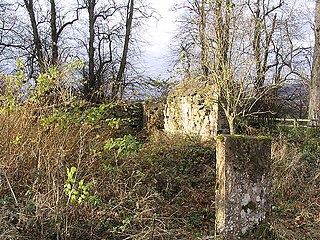This article needs additional citations for verification .(August 2023) |
Edmund Weaver was an English draper and a bookseller in London in the 17th century.
This article needs additional citations for verification .(August 2023) |
Edmund Weaver was an English draper and a bookseller in London in the 17th century.
Edmund Weaver was an apprentice to Thomas Wight and was 'clothed' in 1607 and became master of the Worshipful Company of Drapers in 1637. He was married to Jane Weaver, who died on 29 August 1636. He was appointed a Commissioner of Hereford by an act of parliament in 1648. [1]
Weaver had many important books printed so he could sell them in his shop near St Paul's Church in London. He published Robert Cawdrey's book, A Table Alphabeticall in 1604. A Table Alphabeticall was the first monolingual dictionary in the English language. Weaver went on to publish three subsequent editions of A Table Alphabeticall.[ citation needed ]

Thomas Morton was an English churchman, bishop of several dioceses. Well-connected and in favour with James I, he was also a significant polemical writer against Roman Catholic views. He rose to become Bishop of Durham, but despite a record of sympathetic treatment of Puritans as a diocesan, and underlying Calvinist beliefs shown in the Gagg controversy, his royalism saw him descend into poverty under the Commonwealth.

Samuel Harsnett, born Samuel Halsnoth, was an English writer on religion and Archbishop of York from 1629.

A Table Alphabeticall is the abbreviated title of the first monolingual dictionary in the English language, created by Robert Cawdrey and first published in London in 1604.

David Calderwood was a Scottish minister of religion and historian. Calderwood was banished for his nonconformity. He found a home in the Low Countries, where he wrote his great work, the Altare Damascenum which was an attack on Anglican episcopacy. He was present at the Glasgow Assembly in 1638, and saw episcopacy and the high church liturgy swept away from the Church of Scotland. He died at Jedburgh, a fugitive from his parish of Pencaitland; and buried in the churchyard of Crailing, where the first years of his ministry were spent.
Arthur Dent was an English Puritan cleric, known as an author and preacher.

Robert Cawdrey was an English clergyman who produced one of the first dictionaries of the English language, the Table Alphabeticall, in 1604.

Henry Burton (1578–1648), was an English puritan. Along with John Bastwick and William Prynne, Burton's ears were cut off in 1637 for writing pamphlets attacking the views of Archbishop Laud.

John Cotta (1575–1650) was a physician in England and author of books and other texts on medicine and witchcraft.

Robert Bolton was an English clergyman and academic, noted as a preacher.
Sir Richard Pepys was an English lawyer and politician who sat in the House of Commons in 1640 and was Lord Chief Justice of Ireland. He was a great-uncle of Samuel Pepys, the diarist.

The True Tragedy of Richard III is an anonymous Elizabethan history play on the subject of Richard III of England. It has attracted the attention of scholars of English Renaissance drama principally for the question of its relationship with William Shakespeare's Richard III.
An English Expositor: teaching the interpretation of the hardest words used in our language, with sundry explications, descriptions and discourses is a dictionary of hard words compiled by John Bullokar and first published in London in 1616.
Sir Thomas Wroth was an English gentleman-poet and politician who sat in the House of Commons at various times between 1628 and 1660. Active in colonial enterprises in North America, he became a strong republican in the Rump Parliament but stopped short of regicide.
Thomas Wight was a bookseller, publisher and draper in London. Wight published many important books, including many of the earliest law books in English.
Richard Cresheld was an English judge and politician who sat in the House of Commons variously between 1624 and 1648.
John Stoughton (1593?–1639) was an English clergyman, of influential millennial views. He was the stepfather and preceptor in their youth of Ralph Cudworth and James Cudworth.
John Geree was an English Puritan clergyman preacher, and author of several tracts engaging in theological and political issues of the day, who was silenced for nonconformism but later reinstated. His elder brother Stephen Geree (1594-1665), also a Puritan minister and author, maintained his ministry through the Commonwealth and Restoration in Surrey.

Sir William Whitmore was an English landowner and politician who sat in the House of Commons at various times between 1621 and 1626.
James Rowlandson D.D. was a Canon of Windsor from 1638 to 1639.